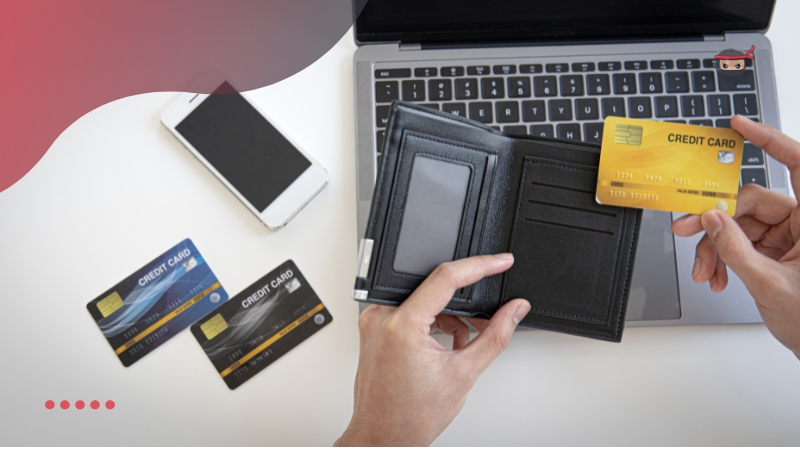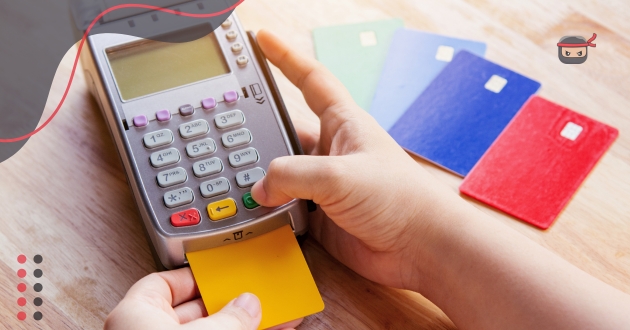How to pay off credit card debt is a question that plagues many individuals facing financial strain. Credit cards can be a convenient way to manage expenses, but they also come with a significant risk: accumulating debt.
The high interest rates, fees, and penalties that accompany unpaid balances can quickly spiral out of control, leaving many feeling overwhelmed and unsure of where to start. Understanding how to effectively tackle this debt is crucial not only for improving your financial situation but also for your overall well-being.
The journey to paying off credit card debt requires a strategic approach and discipline. It’s not just about making payments but about understanding the mechanisms behind your debt, setting realistic goals, and choosing a method that works best for your specific financial situation.
Some people may be struggling to make minimum payments, while others might be looking for ways to expedite their repayment process to save on interest. Regardless of where you fall on this spectrum, knowing how to pay off credit card debt is an essential life skill.
Credit card debt can impact various aspects of your life, from limiting your ability to save or invest, to affecting your credit score and financial opportunities in the future. By taking the time to learn and implement effective debt repayment strategies, you can work toward financial freedom.
When you understand how to pay off credit card debt, you equip yourself with the tools needed to make better financial decisions in the future. This isn’t just about resolving current debt; it’s about creating a sustainable, financially healthy lifestyle that prevents future debt from taking control of your life again.
Understanding Credit Card Debt
Before you can effectively tackle how to pay off credit card debt, it’s essential to fully understand the nature of credit card debt itself. Credit card debt arises when you make purchases using your card but do not pay off the entire balance by the due date.
Moreover, credit card debt often compounds monthly, meaning interest is charged not only on the original balance but also on any unpaid interest from previous months. This snowball effect can make it difficult to get ahead, especially if you’re only making minimum payments.
Managing credit card debt starts with understanding how it works and why it can be so damaging to your financial health. When you understand the difference between the principal balance (the amount you originally charged to the card) and the interest (the cost of borrowing that money), you’re better equipped to create a plan to reduce it.
By knowing the annual percentage rate (APR) of each card, you can prioritize which balances to pay off first, aiming to reduce the highest-interest debt as quickly as possible.
In addition, credit card debt can sometimes be a symptom of larger financial issues, such as living beyond your means or not having an emergency fund. It’s important to recognize that simply paying down the debt won’t solve the underlying problem if the habits that led to accumulating debt remain unchanged.
Therefore, understanding how to manage credit card debt also involves creating a realistic budget, monitoring your spending, and potentially making lifestyle adjustments to prevent future debt from accruing.
Understanding credit card debt is not only about learning how it works but also recognizing its broader implications. It affects your credit utilization ratio, which is a major factor in determining your credit score.

Step-by-Step Guide on How to Pay Off Credit Card Debt
1. Assess Your Current Situation
The first and most crucial step is to take stock of your current financial situation. List all your credit cards, noting the balance, interest rate, and minimum payment required for each.
A useful tool here is creating a budget. By identifying how much money comes in and goes out each month. You can determine how much you can realistically allocate toward your credit card payments.
2. Prioritize High-Interest Debt – How to Pay Off Credit Card Debt
Regardless of the method you choose, prioritizing high-interest debt is essential. High-interest debt can quickly snowball, making it harder to pay off the balance. By focusing on these debts first, you reduce the amount of money you pay in interest. Freeing up more funds to pay off the principal balance.
3. Cut Down on Spending
As you focus on how to pay off credit card debt, it’s vital to examine your spending habits. Look for areas where you can cut back, such as dining out, subscriptions, or impulse purchases.
4. Increase Your Income – How to Pay Off Credit Card Debt
While cutting back on spending is one way to free up money for debt repayment. Increasing your income is another powerful tool. You might consider taking on a part-time job, freelancing, or selling unused items. The extra income can make a significant difference in how quickly you can pay off your credit card debt.
5. Automate Payments
To avoid late fees and ensure that you’re consistently making progress toward eliminating your debt, consider automating your payments. By setting up automatic transfers, you reduce the risk of missing a payment. Which can hurt your credit score and lead to additional fees.
6. Avoid Accumulating More Debt – How to Pay Off Credit Card Debt
As you work on paying off your credit card debt, it’s crucial to avoid adding new charges to your card. Consider using cash or a debit card for purchases to prevent your debt from growing. If possible, leave your credit cards at home to remove the temptation to spend.
7. Consider Credit Counseling
If your debt is overwhelming, it may be worth seeking professional help. Credit counseling services offer assistance with budgeting, debt management, and financial planning. A credit counselor can help you create a personalized plan to pay off your debt and may even negotiate. With your creditors for lower interest rates or reduced fees.
Advantages of Paying Off Credit Card Debt
The benefits of paying off credit card debt extend far beyond financial relief. Here are some key advantages:
- Improved Credit Score: Credit utilization—the amount of credit you’re using compared to your total credit limit—is a major factor in your credit score. By reducing your credit card balances, you lower your credit utilization rate, which can significantly boost your credit score.
- Financial Freedom: Eliminating credit card debt gives you more control over your finances. Without the burden of monthly debt payments, you can allocate your money toward savings, investments, or other financial goals.
- Reduced Stress: Carrying credit card debt can be stressful, especially when interest rates and fees continue to accumulate. Paying off your debt provides peace of mind and reduces the anxiety associated with managing multiple payments.
- Savings on Interest Payments: One of the most immediate benefits of paying off credit card debt is the money you’ll save on interest payments. High-interest credit cards can significantly increase the overall cost of your purchases. By eliminating your debt, you stop paying interest, which allows you to save or invest that money elsewhere.
- Increased Financial Opportunities: With less debt and a higher credit score, you open yourself up to better financial opportunities. Whether it’s qualifying for a mortgage, getting a lower interest rate on a car loan, or being able to invest in your future. Being debt-free enhances your financial flexibility.
Common Mistakes to Avoid
When tackling how to pay off credit card debt, it’s important to avoid certain pitfalls that can make the process harder. Here are a few common mistakes to watch out for:
- Only Paying the Minimum: While paying the minimum amount due might keep your account in good standing. It does little to reduce your balance. The majority of your payment goes toward interest. Meaning it will take years, if not decades, to pay off your debt.
- Ignoring Your Budget: A budget is a critical tool in managing your finances, yet many people don’t stick to it. Without a budget, it’s easy to overspend, leaving you with little to put toward your credit card debt.
- Taking on New Debt: One of the biggest mistakes people make while trying to pay off debt is taking on more credit. This could be through additional credit cards, loans, or even overspending. The key to getting out of debt is focusing on paying it down, not adding more to the pile.
- Failing to Build an Emergency Fund: Many people put off building an emergency fund until after they’ve paid off their debt. But this can backfire. Without an emergency fund, unexpected expensessuch as medical bills or car repairs. Can force you to rely on your credit card, setting you back in your debt repayment plan.
Conclusion
In conclusion, addressing how to pay off credit card debt requires a combination of strategy, discipline, and persistence. By taking the time to assess your financial situation, create a realistic budget, and choose the most suitable debt repayment strategy. You can take meaningful steps toward becoming debt-free.
Whether you prefer the debt snowball method for its motivational benefits or the debt avalanche method to minimize interest costs, the key is consistency. Additionally, managing spending and possibly increasing income are crucial components to accelerate your debt repayment journey.
Moreover, transitioning to tools like balance transfer credit cards or personal loans can significantly reduce the interest burden, making it easier to pay off your debt. However, it is essential to be cautious of the terms and fees associated with these options. Automating your payments and avoiding new debt are also critical in maintaining your financial progress.
In the long run, paying off credit card debt not only improves your financial standing but also brings peace of mind and increases your credit score. Opening up better financial opportunities.
As you work through the steps outlined in this guide, it’s important to stay focused and avoid getting discouraged. If you ever feel overwhelmed, seeking guidance from a certified credit counselor can provide much-needed support. For trustworthy resources and assistance, the Federal Trade Commission (FTC) offers valuable information on debt management and how to avoid debt-related scams.
Ultimately, paying off your credit card debt is a goal that may take time. But the financial freedom and stability you gain will be worth the effort. By staying committed and following the steps. You’ll not only eliminate your debt but also set yourself up for a healthier financial future.

